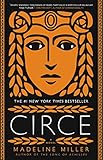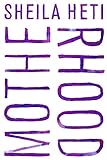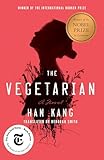For the last two years, I’ve felt like I’ve forgotten how to read well, much less write about it, as it’s become harder to find the space and quiet to do much more than simply let sentences (and tweets, and news alerts, etc. etc.) wash over me. I’m not alone in this, I know, but it’s been a lonely experience; literature has always been my tether to the world, and it feels like that tether’s dangerously frayed.
A couple of times this year I’ve tried to bridge the growing distance between my literary life and daily reality by tackling fiction and nonfiction that feels closer to the world in which I live, commonly known as Texas. Sometimes it’s worked — I read Philipp Meyer’s The Son in the spring and found it a pulpy, compulsive, enjoyable novel of the Lone Star State, complete with oil booms and bits of Cherokee and careful descriptions of the Hill Country, my actual home, and the Llano Estacado, my spiritual one. But sometimes the strategy’s fallen short: I tried and tried again and still failed to get very far into Lawrence Wright’s God Save Texas. I’ve finally decided the failures stem from my weariness of being told what Texas means (in the Year of Beto everyone had thoughts about this, most of them irritating.) I’m much more interested in what it feels like to live here right now — messy, mostly, and full of contradictions.
The most interesting, life-giving reading I did this year felt far removed from both the news cycle and Texas. The Vegetarian by Han Kang was a dark fantasy world I lived for a few days and a book that made me think about my sisters and our struggles, shared and separate, to be in the world. It’s a dreamlike, unsettling novel; I wish I could read it for the first time again, but I think I’d be a little scared. Sheila Heti‘s Motherhood was something else entirely, a beautiful stream-of-consciousness blur of home-grown philosophy and indecision. Essentially a novel of the in-between, Motherhood is hard to sum up, but I know that I loved it. And then Madeline Miller’s Circe was completely different again, all classical coolness and familiar myths made a little less familiar. I tripped over the language more than once, but I ended the novel with a deep sense of gratitude for the gift of humanity in all its transience, fragility and damage.
That fragility and damage also came to mind when reading The Most Dangerous Man in America by Bill Minutaglio and Steven L. Davis, though it was balanced by both outrage and sheer entertainment. Starring Timothy Leary, Nixon, and a staggering amount of LSD, the story’s all true but feels like it can’t be. And in a strange accident of timing, I read The Most Dangerous Man alongside Leslie Jamison‘s The Recovering. While in many ways they couldn’t be more different — the first is a fast-paced, drug-fueled portrait of “the high priest of LSD,” the second an introspective, interrogating look at the stories we use to understand, celebrate and condemn addiction — both helped shape my understanding of our culture’s relationship to substance use and abuse.
It wasn’t all serious this year, though. There’s some reading that’s just fun all the way through, something it took me a while to remember. One of the 2018 reading experiences I’ll hold onto longest was tearing through all of Nick Hornby’s Fever Pitch as part of a desperate (and doomed) attempt to understand my boyfriend’s World Cup mania and general Arsenal addiction. I’ve since given up, but I kept the book, and the Fever Pitch experiment has served as a surprising reminder of literature’s ability to connect us.
It’s that note I’m ending the year on and that I hope will bring me back into the bookish fold in 2019. I just pressed Andrew Martin’s Early Work into a friend’s hands, knowing she’ll enjoy this playful, quick-reading novel with a dark heart; a novel where all the young beautiful writers talk a little too fast and a little too well, telling jokes and making mistakes that are familiar but just far enough removed. Soon we’ll meet up to talk about it, but for now I’m starting Elizabeth Hardwick‘s Sleepless Nights and my list for 2019.
More from A Year in Reading 2018
Don’t miss:A Year in Reading 2017, 2016, 2015, 2014, 2013, 2012, 2011, 2010, 2009, 2008, 2007, 2006, 2005
















